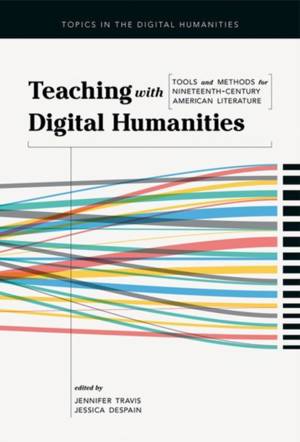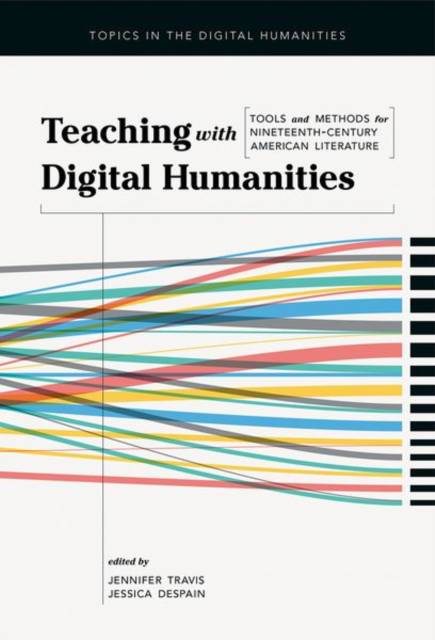
- Retrait gratuit dans votre magasin Club
- 7.000.000 titres dans notre catalogue
- Payer en toute sécurité
- Toujours un magasin près de chez vous
- Retrait gratuit dans votre magasin Club
- 7.000.000 titres dans notre catalogue
- Payer en toute sécurité
- Toujours un magasin près de chez vous
Teaching with Digital Humanities
Tools and Methods for Nineteenth-Century American Literature
127,45 €
+ 254 points
Description
Jennifer Travis and Jessica DeSpain present a long-overdue collection of theoretical perspectives and case studies aimed at teaching nineteenth-century American literature using digital humanities tools and methods. Scholars foundational to the development of digital humanities join educators who have made digital methods central to their practices. Together they discuss and illustrate how digital pedagogies deepen student learning. The collection's innovative approach allows the works to be read in any order.
Travis and DeSpain curate conversations on the value of project-based, collaborative learning; examples of real-world assignments where students combine close, collaborative, and computational reading; how digital humanities aids in the consideration of marginal texts; the ways in which an ethics of care can help students organize artifacts; and how an activist approach affects debates central to the study of difference in the nineteenth century.
A supplemental companion website with substantial appendixes of syllabi and assignments is now available for readers of Teaching with Digital Humanities.
Spécifications
Parties prenantes
- Editeur:
Contenu
- Nombre de pages :
- 298
- Langue:
- Anglais
- Collection :
Caractéristiques
- EAN:
- 9780252042232
- Date de parution :
- 15-11-18
- Format:
- Livre relié
- Format numérique:
- Genaaid
- Dimensions :
- 160 mm x 236 mm
- Poids :
- 589 g






